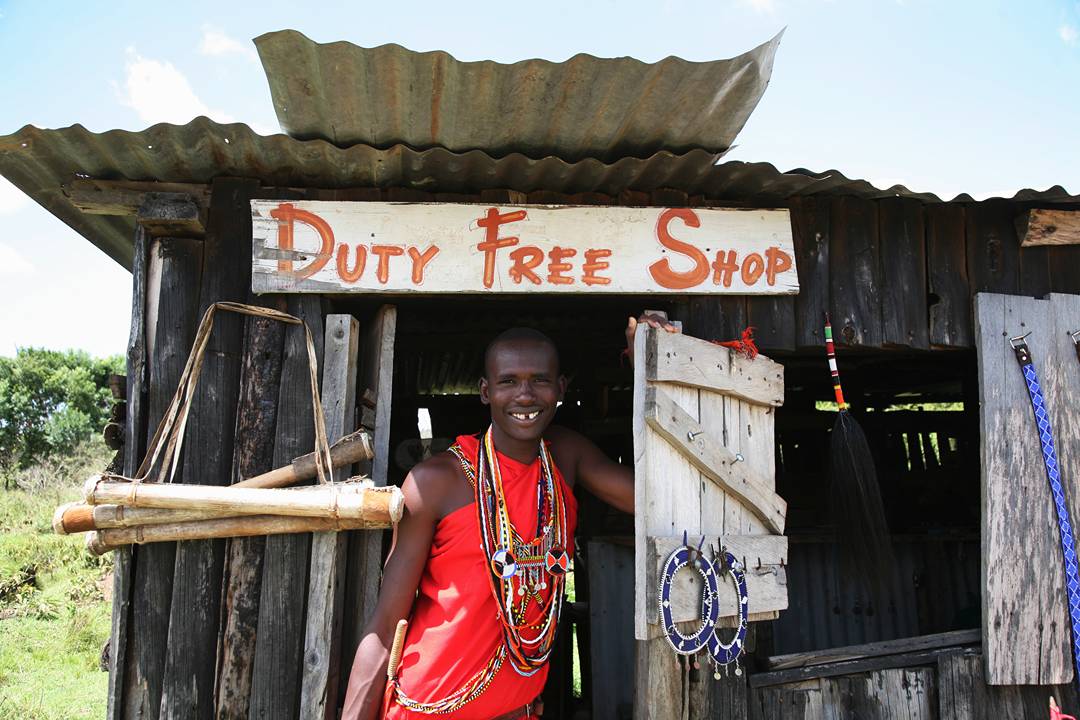Health Check: We’re ‘duty free’, declare several ASX life science companies

Truscreen operates in 'emerging' countries, so will be unaffected by Trump's tariffs. Pic via Getty
- Truscreen and Mesoblast say: we won’t be ‘tariffed’
- Orthocell girds for US Remplir rollout
- Pacific Edge sales slump amid reimbursement uncertainties
Post Liberation Day, announcements are flowing from US-exposed life sciences companies seeking to clarify where they stand with tariffs.
That’s if they have a decent bead on the evolving situation.
While pharmaceuticals are on the US global exempt list for tariffs, there’s more confusion about the diagnostics and devices sector.
A developer of lab-free cervical cancer testing, Truscreen Group (ASX:TRU) this morning declared that both the US and Chinese (retaliatory) tariffs would not affect the company.
Unusually, Truscreen diagnostic is pitched at emerging markets including China, Indonesia, Vietnam and even Uzbekistan, Zimbabwe and Rwanda.
“Truscreen markets both an Australian and a made-in-China device providing a dual-product strategy in the key China market, with preferential market access for China manufactured products,” the company decrees.
The US currently is “not a distribution territory or strategic focus for Truscreen.”
What’s more, Truscreen should enjoy a competitive advantage over imported, US manufactured cytology (pap smear) and DNA-based human papilloma virus diagnostics.
We’re also OK, says Mesoblast …
Mesoblast (ASX:MSB) on Friday reassured investors its US Food and Drug Administration (FDA) approved treatment for childhood graft-versus-host disease, Ryoncil, would not be tariffed*.
*If the Yanks can turn nouns into verbs, so can we.
The same applies to its putative heart failure candidate, Revascor.
The company’s cellular products “are manufactured from US donors in the US and designated as US-origin products”.
In other words: they’re as American as apple pie and an Armalite 15 under the bed.
Earlier, Cochlear (ASX:COH) said its made-in-Australia hearing devices would remain exempt.
… but it’s a ‘fluid’ outlook for the sleep device makers
In the case of ResMed (ASX:RMD), IML portfolio manager Hugh Giddy says the sleep apnoea device maker would be affected because it makes its devices here and in Singapore .
The company also has some manufacturing in the US, the company’s key market.
But it’s a case of competitive relativities, as alluded to by CEO Mick Farrell at Resmed’s late January interim results.
“There may be a tailwind on taxes and on tariffs for us. It may be a headwind for two of our competitors,” he said.
Resmed’s key rival, Phillips’ Respironics arm makes it gear in China but is largely currently out of the market following a product recall.
Respironics would be subject to the US-China tariff slug.
Another rival, the Kiwi based rival Fisher & Paykel Healthcare- FPH makes 45% of its products in Mexico, which supplies 60% of its US volumes.
Last week the company said Mexican manufacturers would be subject to a 25% tariff if they didn’t comply with the US-Mexico-Canada Agreement (USMCA).
“Almost all [the company’s] products imported into the US from Mexico are currently compliant with the USMCA.”
The company says its costs are likely to increase in the current year, which started on April 1, but adds “the economic environment, global response to US tariffs and foreign currency movements may be fluid over this period.”
Yeah – that’s a safe bet.
If some of our companies do fall foul of tariffs, one saving grace is the mark up between the tariffed landed cost and the selling price of devices tend to be huge.
We’re ready to roll in the US, says Orthocell
The torrid broader market has denied Orthocell (ASX:OCC) its moment of glory share-price wise, after Friday’s announcement that the FDA had approved its flagship nerve reconstruction product, Remplir.
But investor attention now turns to the pace of US rollout of the product, a collagen nerve wrap that promises to revolutionise the treatment of difficult peripheral nerve injuries.
Having anticipated approval, the company reports that it is ready to fulfil orders from day one.
Stock will be dispatched from the company’s Perth manufacturing facility to a centralised US warehouse.
Orthocell estimates the US total addressable market at US$1.6 billion, with 700,000 relevant procedures undertaken.
Orthocell is not so much competing with other nerve repair devices, but the full suturing method which is only 50% to 70% successful and poses problems of inflammation, fibrosis and scarring.
The company claims the current devices – used in about 10% of procedures – are too rigid and don’t integrate properly into the nerve tissue.
Orthocell’s trial showed an 85% success rate: 23 out of 27 patients saw “functional recovery” of the muscles controlled by the nerves after two years.
Remplir already is approved locally and in Singapore and New Zealand.
Orthocell shares have lost 15% since Friday’s approval news. Still, they have gained 250% over the last 12 months.
Biotechs have a habit of leveraging approval news by launching a capital rising.
In Orthocell’s case, the company decrees its $32 million cash balance as “sufficient to undertake the US rollout”.
Pacific loses its US sales Edge – but temporarily?
Bladder cancer test developer Pacific Edge’s (ASX:PEB) sales numbers show that uncertainties over reimbursement will always trump – apologies, there – doubts about tariffs.
US public reimbursement agencies in 2023 decided to discontinue funding for Pacific Edge’s Cxbladder urine tests, but the decree is under review.
But tests processed for the year to March fell 11.5% to 28,894 tests, year on year.
This reflected “the reduction in the sales force compared to the prior financial year in response to the uncertainty over [US] Medicare coverage of Cxbladder”.
But tests processed in the March quarter rose 7%, to 7577 assays.
Pacific Edge’s US Medicare coverage was due to expire on February 23 this year but has been extended to April 24.
The company’s negotiating hand has been strengthened because the American Urological Association has included Cxbladder in its guidelines.
Cynata says its heart disease candidate works in rats
Stem cell developer and Mesoblast mini-me Cynata says preclinical (rodent) studies of its drug candidate Cymerus shows the potential to treat ischaemic heart disease, the leading cause of death worldwide.
The company says the project evaluated a new, minimally invasive method to deliver “beneficial” mesenchymal stem cells (MSCs) over an extended period, using a retrievable encapsulation device implanted under the skin.
Post implant, the MSCs were still alive and functional after twelve weeks.
The project was undertaken at Melbourne’s St Vincent’s Institute of Medical Research, availing of around $1 million of funding from a federal Medical Research Future Fund (MRFF) grant.
Otherwise, Cynata’s human trials are focused on adult graft-versus-host disease, diabetic foot ulcers, knee osteoarthritis and kidney transplant rejection.
In the meantime, Mesoblast is angling for accelerated FDA approval of Revascor, to treat ischaemic heart failure patients with reduced ejection fraction (insufficient pumping) and inflammation.
At Stockhead, we tell it as it is. While Orthocell is a Stockhead advertiser, the company did not sponsor this article.
Related Topics

UNLOCK INSIGHTS
Discover the untold stories of emerging ASX stocks.
Daily news and expert analysis, it's free to subscribe.
By proceeding, you confirm you understand that we handle personal information in accordance with our Privacy Policy.








